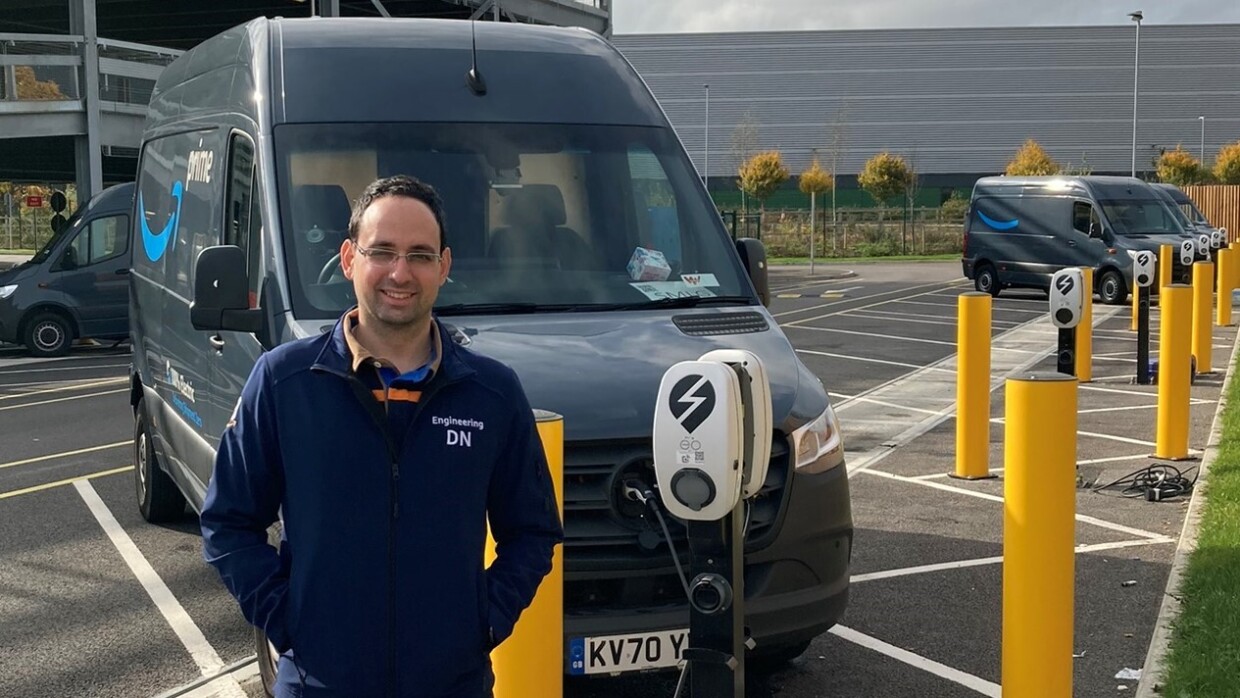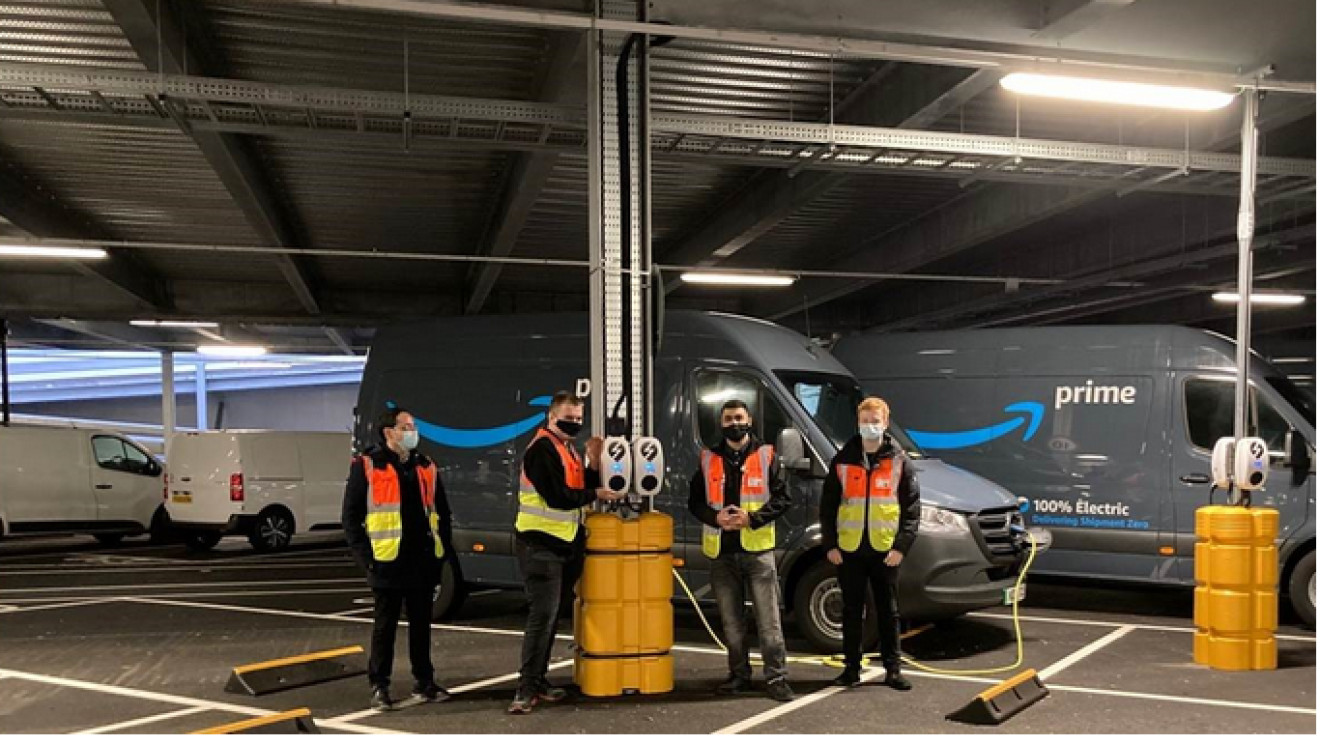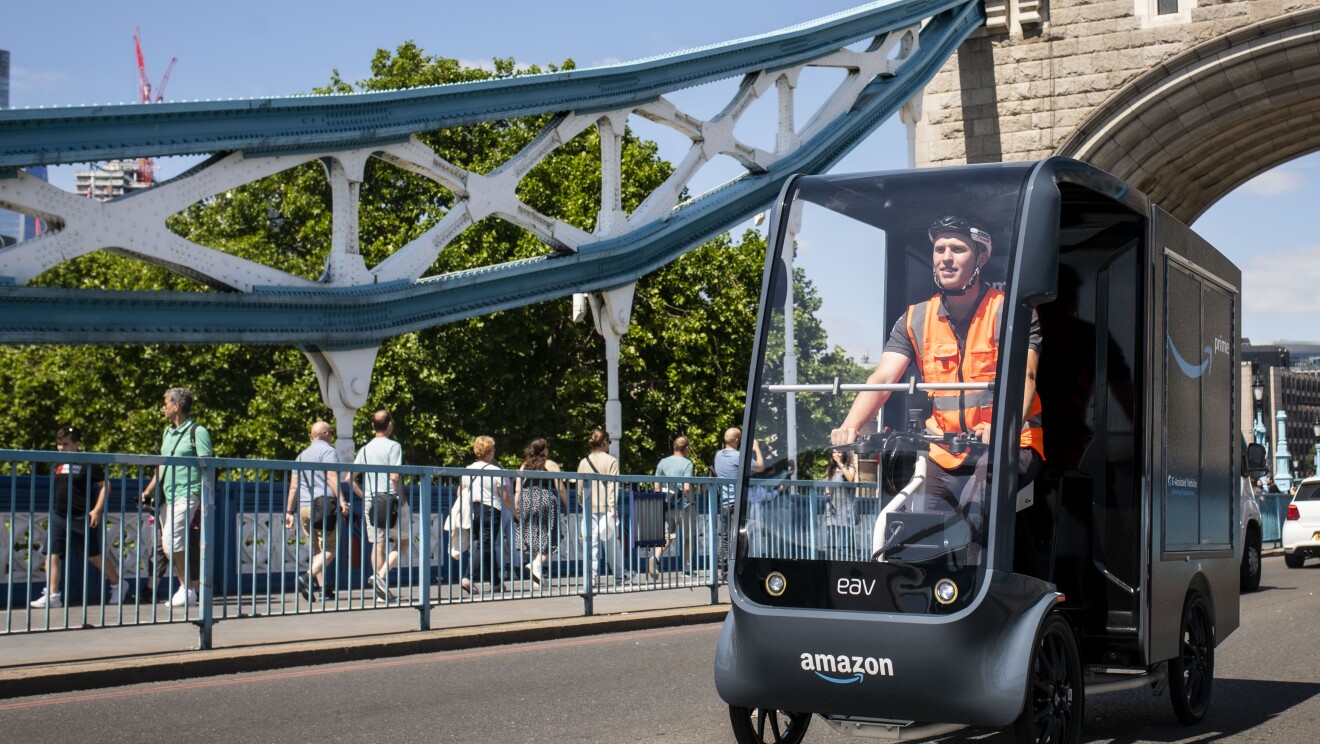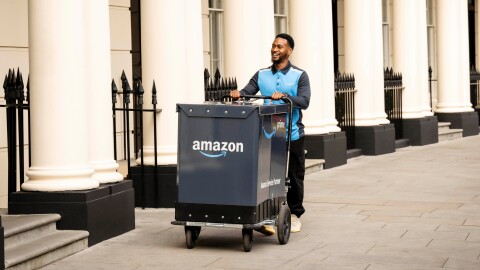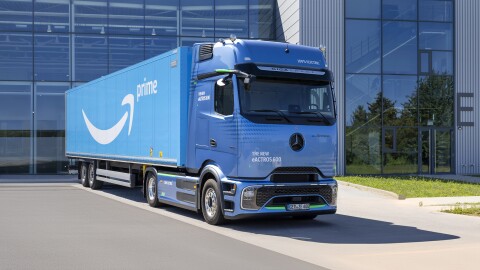In the UK, transport contributes to over one quarter of all greenhouse gas emissions, responsible for 27% in 2019 (not including international aviation and shipping) according to the Department for Transport. For Amazon and many other companies, this means the race is on to decarbonise vehicles and use electricity to help hit the country’s net-zero target by 2050.
For Doros Nicolaides, there was never any question what he wanted to do with his career. Throughout his studies he was fascinated by how electrical engineering could be used to improve the world around him.
“I’ve studied engineering for sustainable development, researched the electrification of roads transportation, and then my PhD was about the infrastructure requirements for the widespread electrification of UK roads."
In December 2021, over a quarter of all new cars sold in the UK were battery electric vehicles. A promising statistic, but to stay at the forefront of fast-paced decarbonisation of road transport, the UK also needs a world-class charging infrastructure for these vehicles. In a future where transport is electric, we also need to consider the access to reliable charging points that are fairly priced and inclusively designed, fit for commercial and private use, and that can seamlessly integrate into a smart energy system.
“Using electrical engineering to make transport on our roads more sustainable isn’t just about the technology used in electric vehicles. That’s only half the challenge. We can’t make a success of electric vehicles without the right infrastructure to support them, so this infrastructure is key to reducing the planet’s carbon effectively.”
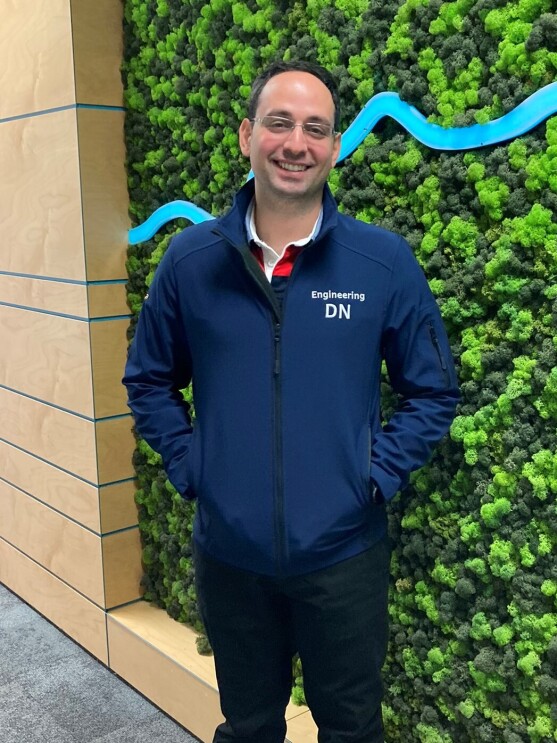
Fast forward to today, Doros is a Senior Project Manager at Amazon working in Sustainability Electricity Engineering. He focuses on the charging infrastructure needed to meet Amazon’s goal of being net-zero by 2040. That means designing and deploying chargers for the growing number of electric delivery vans, cargo bikes and scooters that will make deliveries to customers’ homes across Europe.
The challenge is deploying infrastructure fast enough to meet our short-term needs while keeping in mind the long-term goal. It’s a careful balance.
Despite dedicating his academic and professional career to electrical engineering, Doros believes that challenges in sustainability go beyond this.
“While studying, I was focused mostly on the engineering challenges in sustainability. Working with companies like Amazon has opened me up to a world of other stakeholders, from policy makers to economists, who have their own challenges and responsibilities when it comes to creating a more sustainable world. It’s an interesting change in perspective for me and an exciting stage in my career. My work here always reminds me that everyone must work together to find the best solution.”
The first sparks of a career in sustainability engineering
Doros initially studied electrical engineering at the University of Cyprus, but his experience left him wanting to find an application of engineering that would make a positive impact. In 2013, he decided to move across Europe and study for a Master’s Degree at the University of Cambridge.
“At Cambridge I studied engineering for sustainable development. This was perfect as it allowed me to combine my deep understanding of electrical engineering with a high-level perspective of sustainability.
“My master’s thesis was focused on how to deploy ‘charge-on-the-move’ technology across the UK. This is the infrastructure and technology needed to keep electric vehicles moving and charged while making trips. After finishing my master’s, I continued my research in this area and started a PhD at Cambridge University focused on the electrification of road transportation in the UK.”
Using his specialist knowledge and skills at Amazon
In his current role, Doros is focused on the infrastructure required for Amazon to make the transition to net-zero. Specifically, what’s needed for the widespread use of electric vehicles that make deliveries to customers’ doors, known as the ‘last mile’.
“Our main challenge is to deploy infrastructure in a scalable and optimised way. That might sound simple, but the challenge is deploying infrastructure fast enough to meet our short-term needs while keeping in mind the long-term goal. This means we must make sure all solutions are flexible, considering carefully if something is a decision and action which we can undo, then weighing up the risks. It’s a careful balance”
“I’m pleased that many other businesses will benefit from Amazon’s efforts too. When it comes to sustainable transport, we work with our partners and suppliers to develop new technology and optimise costs, with the aim of making sustainable solutions financially accessible to those in our network and beyond.”
“These ripple effects are just as important as our direct impact. I’m proud to say that Amazon is a leader in the adoption of electric vehicles, in 2019 the company ordered 100,000 custom electric delivery vehicles from Rivian – the largest order ever of electric delivery vehicles at the time. Our successful implementation of an electric delivery fleet will show the rest of the world what’s possible.”
“This has become my dream job. It has given me an opportunity to combine the academic and industrial worlds that I love and create something really meaningful.”
Amazon is the co-founder of and the first signatory to The Climate Pledge, a commitment to reach net-zero carbon by 2040, 10 years ahead of the Paris Agreement.
The work Doros does each day is crucial to Amazon’s electrification programmes and overall sustainability targets. As well as retrofitting existing facilities with charging technology, all new delivery stations are designed with the physical layout and electrical capacity to meet the needs of our current and future electric delivery fleets.
Read more about electric vehicles in Amazon’s delivery fleet and our latest micromobility hub in London.


